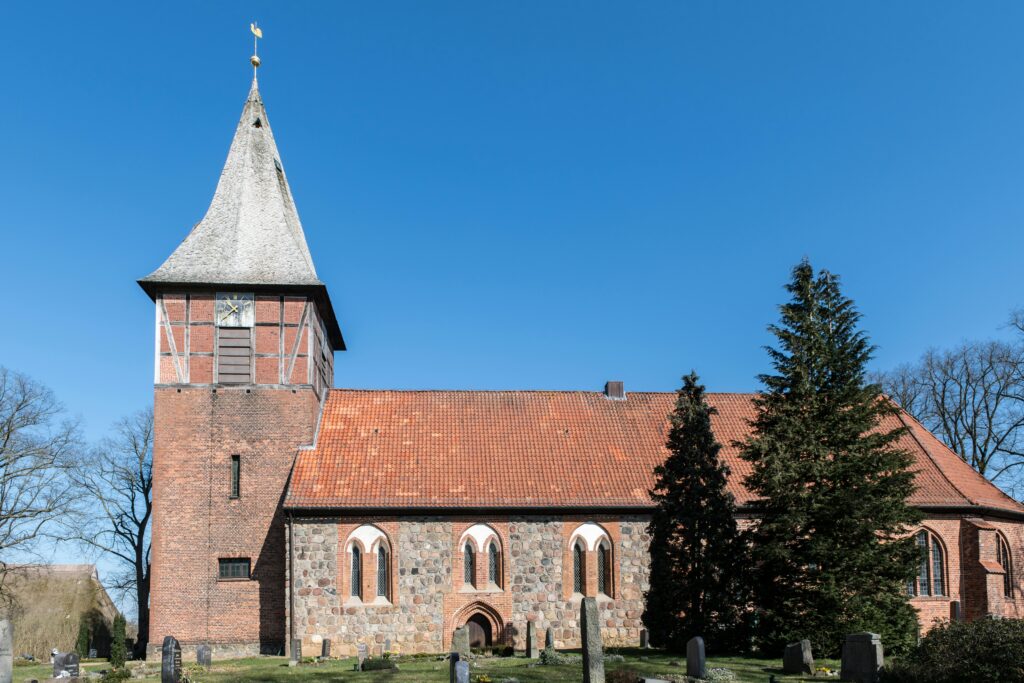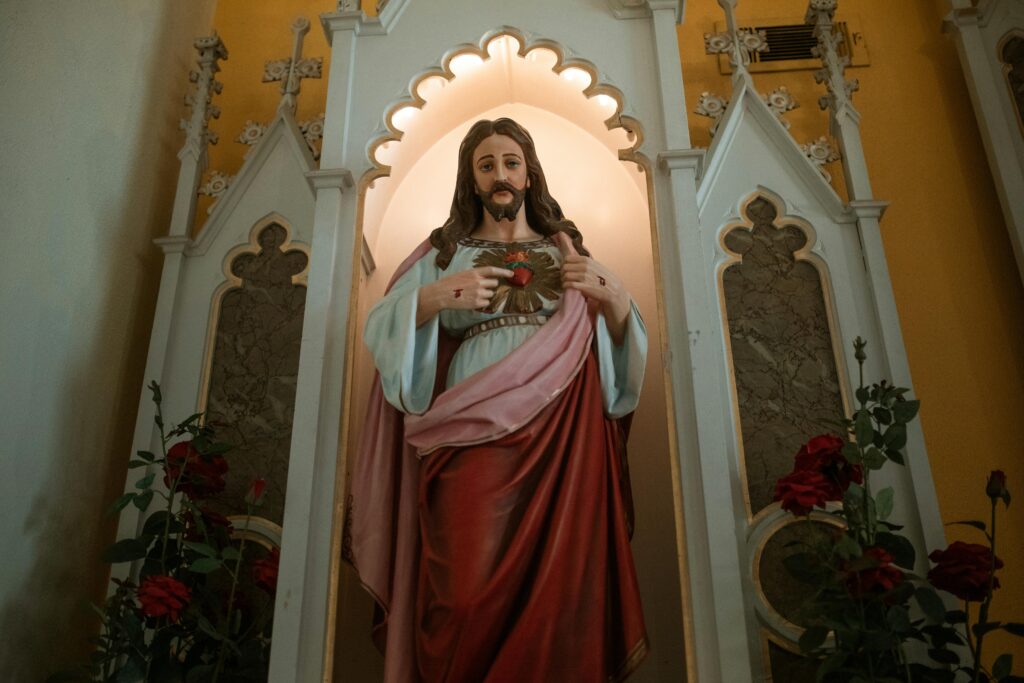As a Christian, I find immense strength and encouragement in understanding the roots of my faith. Delving into the history of the early church is like unearthing a treasure trove of inspiring stories, unwavering commitment, and profound lessons that continue to resonate with us today. It’s a journey that connects us with the individuals who, despite facing unimaginable challenges, laid the foundation for the vibrant and diverse Christian community we are a part of today.
Understanding the early church isn’t just about knowing historical dates and names. It’s about understanding the struggles they faced, the choices they made, and the faith that sustained them. It allows us to appreciate the sacrifices made on our behalf and provides a framework for navigating the complexities of our modern world with a stronger, more informed faith.
Here are five crucial facts about the history of the early church that I believe every Christian should know:
1. Born in Pentecost: The Holy Spirit and the Rapid Spread of the Gospel
The birth of the church is inextricably linked to the miraculous event of Pentecost, as described in Acts 2. After Jesus’ ascension, the apostles, gathered in Jerusalem, were filled with the Holy Spirit. This wasn’t just a powerful experience; it was a divine empowerment that transformed them from fearful followers into bold proclaimers of the Gospel.
Imagine the scene: a diverse crowd gathered in Jerusalem, suddenly hearing the apostles speaking in their native tongues, declaring the mighty works of God. This miraculous event shattered language barriers and ignited a fire that spread rapidly. Peter’s sermon that day resulted in the conversion of approximately 3,000 people!
This event underscores a crucial truth: the church wasn’t built on clever strategies or charismatic leaders alone. It was birthed by the power of the Holy Spirit. The early believers understood their dependence on the Spirit’s guidance, wisdom, and strength. This reliance on the Holy Spirit fueled their evangelistic efforts and enabled them to overcome persecution.
As modern Christians, we can learn from this. Are we truly relying on the power of the Holy Spirit in our lives and in our churches? Are we open to the Spirit’s leading, even when it challenges our comfort zones? The early church’s example reminds us that true growth and impact come from a deep dependence on the divine power that was present at its very beginning.
2. Persecution as a Crucible: Faith Forged in Fire
The early church was not welcomed with open arms by the world. In fact, it faced intense persecution from both Jewish authorities and the Roman Empire. Believers were ostracized, imprisoned, tortured, and even killed for their faith.
Think about Stephen, the first Christian martyr, stoned to death for his unwavering testimony. Consider Paul, repeatedly beaten, imprisoned, and ultimately martyred for spreading the Gospel. These were not isolated incidents but representative of the constant threat faced by early Christians.
However, this persecution, rather than extinguishing the flame of faith, actually fueled its spread. The hardships they endured served as a crucible, purifying and strengthening their commitment to Christ. It forced believers to rely on each other for support and encouragement, fostering a deep sense of community and shared purpose.
Moreover, the unwavering faith and courage displayed by early Christians in the face of death served as a powerful witness to the truth of the Gospel. Their willingness to suffer for Christ attracted many who were disillusioned with the empty promises of the Roman Empire.
For us today, the persecution faced by the early church serves as a powerful reminder that faith is not always easy. It challenges us to consider: how strong is our faith? Are we willing to stand firm in our convictions, even when faced with opposition or ridicule?
3. Defining Doctrine: Battles Against Heresy and the Formation of the Canon

The early church wasn’t just fighting external enemies; it also faced internal challenges in the form of heresies – false teachings that threatened to distort the core doctrines of Christianity. Gnosticism, Docetism, and Arianism were just a few of the deceptive ideologies that sought to undermine the true nature of Christ and the Gospel message.
In response to these challenges, early church leaders and theologians engaged in intense debates and discussions, striving to define and defend the orthodox faith. These debates led to the formulation of creeds, such as the Apostles’ Creed and the Nicene Creed, which articulated the fundamental beliefs of Christianity.
Furthermore, the early church grappled with the important task of determining which books should be included in the New Testament canon. Through careful discernment and evaluation, based on factors such as apostolic authorship, consistency with established doctrine, and widespread acceptance within the church, they identified the books that were inspired by God and authoritative for Christian belief and practice.
Understanding this process is crucial because it highlights the importance of sound doctrine and the need for careful discernment in matters of faith. It reminds us that the Bible is not just a collection of stories, but a divinely inspired and carefully curated collection of writings that reveals God’s truth to humanity.
4. From House Churches to Organized Structures: The Evolution of Church Governance
The early church began as small, informal gatherings in homes. These house churches provided a safe and intimate environment for believers to worship, share meals, and learn from the apostles and other leaders.
As the church grew, the need for more structured leadership and organization became apparent. The apostles appointed elders and deacons to oversee various aspects of church life, such as teaching, pastoral care, and practical ministry.
While the early church was relatively decentralized compared to some modern denominations, there was a clear emphasis on unity and cooperation among the different congregations. They regularly communicated with each other, shared resources, and supported one another in times of need.
This evolution of church governance highlights the importance of both spiritual leadership and practical organization. It reminds us that the church is not just a collection of individuals, but a community that requires structure and accountability to function effectively.
5. A Transforming Influence: Impact on Society and Culture
Despite facing persecution and internal challenges, the early church had a profound impact on the society and culture of the Roman Empire. Their message of love, forgiveness, and hope resonated with many who were suffering under the weight of oppression and inequality.
Christians were known for their acts of charity, caring for the poor, the sick, and the marginalized. They challenged the prevailing social norms, advocating for the dignity and worth of all people, regardless of their social status or background.
The early church’s unwavering commitment to ethical living and social justice gradually transformed the moral fabric of society. Their influence extended to various aspects of life, including family, law, and government.
The impact of the early church serves as a powerful reminder that faith is not just a private matter, but a force that can transform individuals and societies for the better. It challenges us to consider: how is our faith impacting the world around us? Are we living out the teachings of Christ in our daily lives, striving to make a positive difference in our communities?
The early church, also known as the primitive church, refers to the period of Christian history between the death and resurrection of Jesus Christ and the end of the apostolic era, roughly spanning from 30 AD to 100 AD. This was a time of great transformation and growth for the Christian community, as it evolved from a small group of Jewish followers of Jesus to a worldwide movement.
“The Church is the pillar and foundation of the truth” – 1 Timothy 3:15
As I delve into the history of the early church, I am reminded of the importance of understanding our roots and the sacrifices made by our forefathers in the faith. Here are 5 key facts about the early church that I believe every Christian should know:
5 Key Facts About the Early Church

- The Early Church was Founded on the Day of Pentecost: The early church was born on the day of Pentecost, when the Holy Spirit descended upon the disciples of Jesus, empowering them to spread the gospel message to all nations. This event, recorded in Acts 2, marked the beginning of the Christian church and the start of a new era in human history.
- The Early Church was Persecuted by the Roman Empire: The early church faced intense persecution from the Roman Empire, which saw Christianity as a threat to its power and authority. Many early Christians, including apostles and martyrs, were arrested, tortured, and killed for their faith. Despite this persecution, the church continued to grow and thrive.
- The Early Church was Led by Apostles and Elders: The early church was led by apostles, such as Peter, Paul, and John, who had been commissioned by Jesus to spread the gospel message. These apostles, along with elders and other leaders, played a crucial role in guiding the church and resolving disputes.
- The Early Church Practiced Communal Living: The early church practiced a form of communal living, where members shared their resources and possessions with one another. This practice, known as “koinonia,” was based on the teachings of Jesus and the example of the apostles.
- The Early Church was United in Worship and Doctrine: Despite its diversity and geographical spread, the early church was united in its worship and doctrine. The church celebrated the Lord’s Supper, baptism, and other sacraments, and its members were united in their belief in the teachings of Jesus and the apostles.
| Period | Event | Description |
|---|---|---|
| 30 AD | Death and Resurrection of Jesus | The crucifixion and resurrection of Jesus marked the beginning of the Christian era |
| 33 AD | Day of Pentecost | The Holy Spirit descended upon the disciples, empowering them to spread the gospel message |
| 50 AD | Council of Jerusalem | The apostles and elders met to resolve disputes and establish doctrine |
| 64 AD | Persecution under Nero | The Roman Emperor Nero launched a brutal persecution of Christians, leading to the deaths of many martyrs |
| 100 AD | End of the Apostolic Era | The apostolic era came to an end with the death of the last apostle, John |
Characteristics of the Early Church
The early church was characterized by several key features, including:
- Worship: The early church worshipped God through prayer, singing, and the celebration of sacraments such as the Lord’s Supper and baptism.
- Fellowship: The early church practiced a strong sense of community and fellowship, with members sharing their resources and possessions with one another.
- Evangelism: The early church was passionate about spreading the gospel message to all nations, and its members were empowered by the Holy Spirit to do so.
- Discipleship: The early church placed a strong emphasis on discipleship, with members being trained and equipped to follow the teachings of Jesus and the apostles.
FAQs
Here are some frequently asked questions about the early church:
- Q: What was the relationship between the early church and the Roman Empire? A: The early church faced intense persecution from the Roman Empire, which saw Christianity as a threat to its power and authority.
- Q: Who were the leaders of the early church? A: The early church was led by apostles, such as Peter, Paul, and John, who had been commissioned by Jesus to spread the gospel message.
- Q: What was the role of women in the early church? A: Women played a significant role in the early church, serving as leaders, teachers, and evangelists.
Conclusion
In conclusion, the history of the early church is a rich and fascinating topic that every Christian should know. From its humble beginnings to its rapid growth and spread across the world, the story of the early church is one of courage, perseverance, and faith. As we reflect on the 5 key facts about the early church, we are reminded of the importance of understanding our roots and the sacrifices made by our forefathers in the faith.
Here are some key takeaways from this article:
- The early church was founded on the day of Pentecost and was led by apostles and elders.
- The early church faced intense persecution from the Roman Empire, but continued to grow and thrive.
- The early church practiced communal living and was united in worship and doctrine.
- The early church was passionate about spreading the gospel message to all nations and placed a strong emphasis on discipleship.
As we look to the future, we can learn valuable lessons from the early church about the importance of community, evangelism, and discipleship. By understanding our roots and the sacrifices made by our forefathers in the faith, we can build a stronger, more vibrant church that is equipped to spread the gospel message to all nations.
Some other key points to consider:
- The early church was a diverse community, made up of people from different backgrounds and cultures.
- The early church was united in its worship and doctrine, despite its diversity and geographical spread.
- The early church placed a strong emphasis on the importance of scripture and the teachings of Jesus and the apostles.
Overall, the history of the early church is a rich and fascinating topic that has much to teach us about the importance of community, evangelism, and discipleship. As we reflect on the 5 key facts about the early church, we are reminded of the importance of understanding our roots and the sacrifices made by our forefathers in the faith.
Conclusion: A Legacy of Faith and Inspiration
Studying the history of the early church is more than just an academic exercise. It’s a deeply personal and transformative journey that connects us with the roots of our faith and inspires us to live with greater purpose and conviction. By understanding the challenges they faced, the sacrifices they made, and the faith that sustained them, we can gain valuable insights for navigating the complexities of our modern world and building a stronger, more vibrant Christian community. Their legacy of faith, courage, and unwavering commitment to Christ continues to shine brightly, guiding us on our own journey of faith. Let us learn from their example and strive to live out the Gospel message with the same passion and dedication that characterized the early church.

